- Home
- George R. R. Martin
The Book of Magic Page 13
The Book of Magic Read online
Page 13
Casprine’s head moved in a shrug. “That which, could you but possess it, would fulfill your heart’s desire.”
“And what would Poddlebrim know of my heart’s desire?” said Masquelayne.
This time, it was Casprine’s shoulders that expressed his inability to answer. “For that, I suppose I would need to master the arcana of the purple school.”
Masquelayne restrained his temper, fighting down an impulse to swathe himself in Zinezan’s cloak and deploy Willifant’s beam. “Is there anything more you can tell me?” he said.
“I recall that, in his early studies, Poddlebrim was drawn to earth magic,” Casprine said. “Things that grew roots and branches, and other things that might live and thrive among those extrapolations.”
Masquelayne made a fricative sound, his upper teeth touching his lower lip as he blew contemptuous air. “Earth magic!” he said. “A farmer!”
Again, Casprine shrugged. He had nothing to add.
“What does this mutton-thumping peasant want?” Masquelayne pressed him. “What is his heart’s desire?”
His host gave that some thought, without much result. Finally, he said, “I recall hearing that he had approached Hua-Sang, something about wanting to acquire that antique harpsichont that Hua-Sang inherited from Vanthoonian when Vanthoonian translated himself to the Overworld. But that was long ago.”
This news struck Masquelayne as odd. “A harpsichont? Poddlebrim enjoys screechy-scratchy fugues?”
Yet another lifting and settling of the silk-clothed shoulders. “It is what I heard. And that he was unhappy when Hua-Sang refused to consider the question.”
“Indeed,” said Masquelayne. “What would a farmer from the Forest of Ardollia have to offer a sophisticate like Hua-Sang?”
“Doubtless that was the problem,” Casprine said. “More than that, I cannot say.”
It was not a great deal of information compared to a nygrave’s skull. But Masquelayne comforted himself with the knowledge that he had two of them and was keeping the better. As well, Casprine had not asked about the skull’s condition. The fact that the left horn had a spiral fracture and could thus not withstand strong vibrations was something Casprine would have to deal with.
He made his farewells and approached the door. Casprine made to remove Schletzel’s Buffer, but Masquelayne indulged himself in the pleasure of speaking the counterspell himself. He opened the door, stepped into the tunnel, and found his way home through the Glooms.
* * *
—
“Hua-Sang, it is Masquelayne the Incomparable who speaks!”
“I recognize the tone,” said a precise voice from the aspekton on Masquelayne’s workbench. “I will converse.”
The device glowed and a simulacrum of Hua-Sang appeared in Masquelayne’s workroom, hovering in the air so that the diminutive thaumaturge appeared to be looming over him. Masquelayne adjusted a setting and the image’s feet settled to the floor, so that now it was he who had the advantage of height.
The two wizards made each other the courtesies that good manners required, then Hua-Sang said, “What business have we?”
Masquelayne said, “I am assembling a quartet—perhaps a quintet, I haven’t quite decided—to play threnodies and light pieces of the Eighteenth Aeon. I have trained my sylphs, but I wish to employ authentic instruments of the period, rather than re-creations.”
“I was not aware you had such abstruse musical tastes,” said Hua-Sang.
“I do not advertise all my interests,” Masquelayne said.
Hua-Sang’s refined features composed themselves into a neutral aspect. “And how does this concern me?”
“I’m told that you used to have a harpsichont of the Eighteenth Aeon.”
“That is so. I have it still.”
“I wonder if you would consider parting with it?”
“Wonder no more,” said the simulacrum. “It is dear to my heart.”
“I was thinking I might have something you would consider trading for, some item that would make the arrangement to your advantage.”
Hua-Sang’s expression remained placid. “It is only remotely possible. I believe I have all that I require.”
Hua-Sang’s self-satisfaction was well known. Masquelayne had prepared himself for his inquiry to be met with initial indifference. But he had also worked his underlings hard to discover within his own holdings that which the other wizard might find it difficult to refuse. His majordomo had consulted the inventories at great length and finally suggested an item Masquelayne had won in a duel and for which he had no use. It lay forgotten in a storeroom.
Now Masquelayne said to Hua-Sang, “You are familiar with the serpents of Balbesh Island, the ones that grow to prodigious size?”
“I believe I’ve heard something.”
“Have you heard that, among mature specimens, stones accrue in their gall bladders?”
“Mmm,” said Hua-Sang.
“And that it is a peculiar property of these stones that they resonate to a wide range of fluxions? Indeed, resonate and amplify?”
Hua-Sang’s right eyebrow elevated itself, not very far and not for very long, but Masquelayne saw it. He now paused and waited.
The silence lengthened until Hua-Sang could no longer resist. “Have you,” he said, “one of those stones?”
Masquelayne heard the suppressed breathiness of the question. Without a word, he drew from a pocket of his robe a fist-sized lump of calculus and held it where the aspekton’s percepts could not miss it.
“Ah,” said Hua-Sang.
“Indeed,” said Masquelayne.
* * *
—
“If you happen to be in contact with Poddlebrim,” Masquelayne said, “you might let him know that I have acquired Hua-Sang’s harpsichont.”
Casprine’s simulacrum struggled to maintain a placid expression. “You expect me to be your go-between?”
Masquelayne’s hand stirred the air in a gesture of uninterest. “Have I offended?” he said, with a tone that said the prospect did not greatly bother him.
Casprine’s eyes narrowed briefly, then he assumed his own mask of indifference. “If I happen to encounter him, I will mention it.”
“Excellent,” said Masquelayne and, after the briefest of formalities, broke the connection.
* * *
—
“I have been in touch with Poddlebrim,” Casprine says. “He will accept a communication.”
“Of course he will,” said Masquelayne. He could not resist inquiring after the nygrave’s skull. “I trust it is adequate.”
“More than adequate,” was the reply. “I mentioned it to Poddlebrim and he said he had a spell called Uvanch’s Infallible Rectifier.”
Masquelayne’s brows drew down. “An obscurity. I have not heard of it.”
“No matter. I took the skull to him, he performed the exercise, the fractured horn is now as new.” Casprine allowed himself a wide smile and let it linger. “My divinations have reached new levels of perspicacity.”
“He is generous. Or should I say a squanderer?”
“Say as you wish. I must return to my inquiries.” This time it was Casprine who broke the connection, not even waiting for Masquelayne to finish his courtesy.
* * *
—
“Poddlebrim, it is Masquelayne who speaks!”
An image of the plump little thaumaturge did not appear above the aspekton, but his voice came from the air. “I prefer to communicate face-to-face. If you desire a conversation, I will accept a visit.”
Masquelayne repressed his first impulse and said, “Very well. If you will prepare an entrance, I will come by way of the Glooms.”
But Poddlebrim said no. “Opening a way to the Glooms allows in a miasma that interferes with a delicate handling o
f the argent and sable fluxions.”
“The what?” said Masquelayne before he could control himself. He knew of four kinds of fluxions: yellow, green, blue, and red. They were the intersecting lines of force that formed a network across land and sea. Their manipulation by those trained to focus the will by means of sounds, motions, and stances was the essence of magic.
“Argent and sable. You are not familiar with them?”
Masquelayne faced a choice. If there were such a thing as fluxions he had never heard of, he would lose face by admitting it. If the alleged fluxions were illusory, he would lose face by claiming to know of them—especially if Poddlebrim was positioning him for ridicule. The story would soon get about.
He chose the third option. “I do not have time for this,” he said, “certainly not if I cannot arrive by the Glooms. Am I to come by carriage?”
“That would be best,” said Poddlebrim. “Its energies will not disturb my experiments.”
“Expect me soon.” Masquelayne broke the connection, without bothering to observe the niceties.
* * *
—
His carriage was activated by Azerion’s Inexhaustible Motivator. It traveled along corridors where fluxions ran parallel to each other and operated best where blue predominated. That meant it could enter the Forest of Ardollia, but could come no nearer to Poddlebrim’s cottage than a brief walk along a narrow and winding path.
This puzzled Masquelayne, because wizards invariably established their seats where fluxions met in nodes. An intersection of yellow and green was the least favorable. Where thick lines of blue and green crossed each other offered a strong foundation for most spells and cantrips, but the rare crossroads of red and blue were optimum, provided the thaumaturge possessed the will and skill to manage the natural tendency of the two colors to clash.
Masquelayne’s eyrie at High Voiderasch was situated on an intersection of blue and red fluxions, with the blue predominating, which made it possible for him to derive power from the incongruity. He was of the blue school but aspired to rise in time to the purple, once he had mastered enough of the red school’s practices to integrate its lore with that of his own tradition. He was sure he would be able to apply the requisite will.
But Poddlebrim’s cottage was not sited on a node of any kind. An able practitioner could still wield magic there, but should expect no inherent amplification of will. Yet somehow the location had managed to rebuff his demon, apparently without effort. It made no sense.
Masquelayne felt a slight tingle in his lower front teeth as he reached the clearing, and sensed that he had been permitted to pass through a discriminating barrier. But he did not recognize the spell. That caused him a moment’s unease, but he pushed it from his mind as the door opened and Poddlebrim gestured for him to enter.
The visitor offered a full spectrum of the courtesies practitioners could extend to each other and accepted those returned in kind by his host. That gave Masquelayne time to inspect the premises. He was surprised to see scant evidence of any thaumaturgical arts being practiced here. There was a workbench, but little in the way of apparatus on it. There was a bookcase, but it contained only three tomes, none of them of great size. And that was all. The rest of the room’s furnishings consisted of a table and two stools, a narrow cot in an alcove behind a half-drawn curtain, a fireplace, and a worn rug. He saw no evidence of servants, human or otherwise.
Poddlebrim observed Masquelayne’s inventory of his belongings and said, “I have chosen a simple existence. I do not care to let extranities impede upon my researches.”
“And yet,” said Masquelayne, “you wished to acquire an antique harpsichont.”
The plain face showed surprise. “I did, indeed. I had an idea its tones would resonate closely with a spell I was composing.” The little wizard spread his hands and smiled. “But that was back when I was of the purple school.”
Masquelayne heard the last few words, though they did not register. “You are composing?” he said.
Now the small hands rose in a disclaimer. “In a minor way,” Poddlebrim said. “Mostly I am rediscovering lost spells. But occasionally, I am able to create a variation on a forgotten theme. Such as that little display I put on at the Grand Symposium.”
“Yes,” said Masquelayne, as his mind wrestled with what he was hearing, “that was quite…” His voice dwindled as the full import of the other man’s assertion reached him. “Lost spells?” he said. “Are there many?”
“Oh, dozens, I should imagine. Perhaps scores. There is a very long stretch of time behind us, you know. And now that I have identified fluxions of argent and sable—those are the antique terms, of course; silver and black, we would say today—well, now that I’ve found where they were hidden, and learned how to evoke them, well…”
Poddlebrim ended his speech with a gesture that said much was now possible that had not been before. Masquelayne nodded and smiled, though he doubted the smile was one of his usual masterful smirks.
“Argent and sable?” he said. “Yes, I recall something, can’t remember where or when. Minor stuff, wasn’t it? Tinkering around the edges?”
“Do you think so?” said Poddlebrim, his face a map of polite restraint. “My sense of things is that they are the foundation for a school of magic that surpasses anything we have known in recent aeons. Might and power, subtlety and profound depths—that’s how it seems to me.” He shrugged. “That is why I gave up the purple school.”
The little wizard made a gesture of self-deprecation and concluded, “Of course, I’ve only pierced the surface of the pond. Time will tell.”
Masquelayne stood blinking. All he could think of to say was, “So you have no interest in the harpsichont?”
“Not any more,” said Poddlebrim. “Still, it was kind of you to think of me.”
* * *
—
Masquelayne returned to his turreted manse above the Vale of Coromance. He dismissed his carriage and went to his workroom, where he sat in his thinking chair and let the implications of Poddlebrim’s remarks wash over him. Sensing his unease, his attendants came to grin and flatter, but he shouted at them and made them flee in tears and anguish.
His outburst and the sounds of their receding wails restored him to a more usual mood, and he rose from the chair with fresh resolve. He took down a book bound in red-scaled leather and consulted its pages until he found what he sought. Then he prepared the requisite materials, congratulating himself on having kept the vial of corpse-dust the spell called for. When all was ready, he drew the words of the incantation into his mind, struggled with them until they became orderly, then spoke them while his fingers reached to touch the fluxions, visible only to him, that passed through the room.
A wavering, almost transparent shape appeared before him. He concentrated his will and stroked the lines of blue force. The shape became more solid and its outlines became stable.
“Let me go,” said the ghost.
“Not till I am satisfied.”
The apparition sighed. “What would you have of me?”
“Knowledge,” said Masquelayne. “The knowledge of argent and sable.”
The revenant moaned. “I know nothing of that.”
“You were once the greatest wizard of Almery. If you do not know, none does.”
“I remember forgotten palaces, the faces of dead paramours, my enemies bound and silenced, seas now turned to sand. But of magic, I recall nothing.”
“Try!”
“I cannot. It takes will, and this poor remnant of me has none.”
“What if I restored you to life?” Masquelayne said.
“Your summoning spell requires me to speak only truth. I would crush you like an eggshell.”
Masquelayne made a noise deep in his throat. He dismissed the ghost and turned to his looking glass. But the demon said it knew noth
ing of argent and sable fluxions. He went to his books again, tracing from one reference to another, struggling against the resistance of the most ancient tomes, which from long association with thaumaturges over millennia had acquired much will of their own.
He gazed into globes of black glass, cast many-sided dice carved from the bones of dragons, drank potions to bring visions of other planes, projected his mind into bygone ages, hunted and sought in all the ways and byways available to a grand thaumaturge of the blue school.
And found nothing. At the end of it all, he lay weak and feverish on the floor of his workroom. A sylph hovered in the doorway, offering tentative cries, until he ordered it to bring him a restorative broth. When he had taken a few spoonfuls, the lethargy seeped from him, and he climbed into his chair and thought.
And it was then that the answer came, bursting into his awareness like a titanium salute firework. He ground his teeth in rage as the perfidy of his enemies became clear to him. Hua-Sang, Casprine, they were part of it. Lurulan and Ombbo, certainly, eager for revenge after he had put them in his shade at the Grand Symposium. And behind them others, those he had challenged and bested over the years, taking their wands and their prized possessions and daring them to withstand the force of his will.
Masquelayne had defeated each of them in single encounters, wizard to wizard, and not one of them had failed to yield their goods and slink away. Now they had combined to frustrate him, but not in open battle. Instead, they had conspired, recruiting some hedge sorcerer he had scarcely heard of, and making this Poddlebrim appear to command powers beyond Masquelayne’s grasp.
Argent and sable, indeed! he thought. A trick, a swindle, a sleight in plain sight!
They had sent him off on a fool’s merrychase, seeking a never-was he would never find. And, surely, right now they were laughing at him, mocking him. He imagined Lurulan mincing about, mimicking his mannerisms, and Ombbo pulling faces, while the detestable Poddlebrim simpered and sought new opportunities to please his masters.

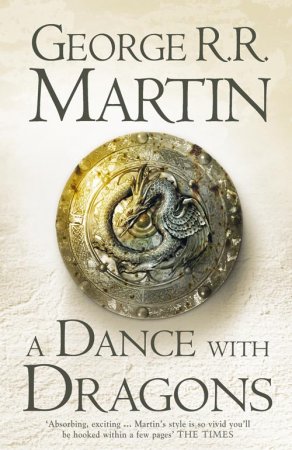 A Dance with Dragons
A Dance with Dragons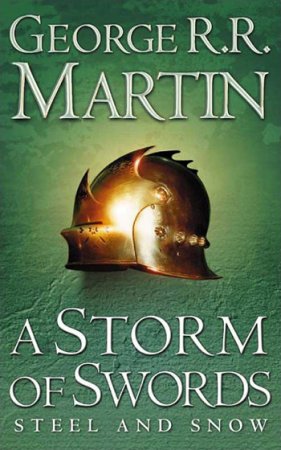 A Storm of Swords
A Storm of Swords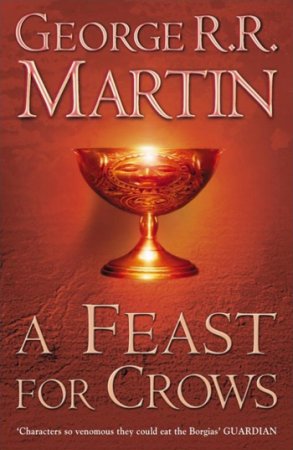 A Feast for Crows
A Feast for Crows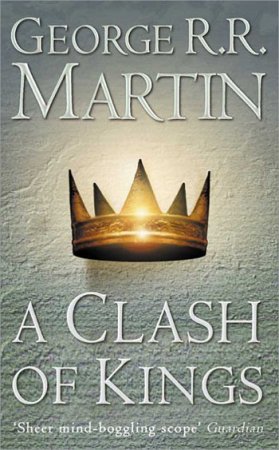 A Clash of Kings
A Clash of Kings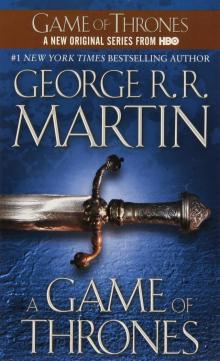 A Game of Thrones
A Game of Thrones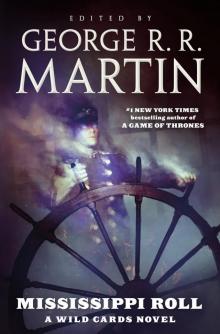 Mississippi Roll
Mississippi Roll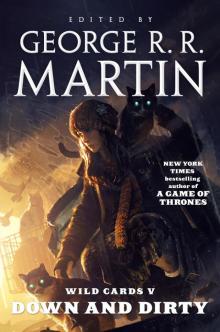 Wild Cards V: Down and Dirty
Wild Cards V: Down and Dirty Busted Flush
Busted Flush When the Devil Drives
When the Devil Drives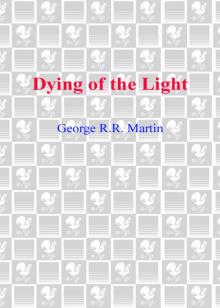 Dying of the Light
Dying of the Light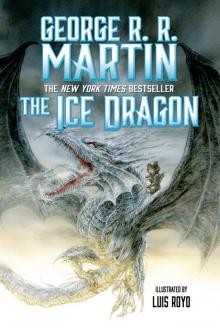 The Ice Dragon
The Ice Dragon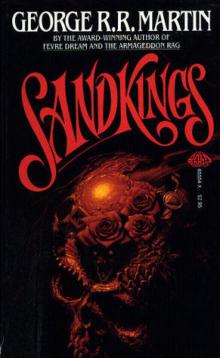 Sandkings
Sandkings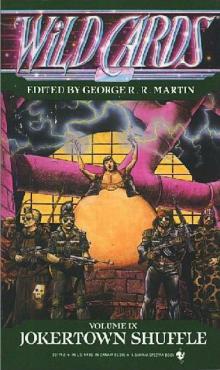 Jokertown Shuffle
Jokertown Shuffle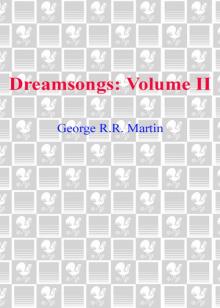 Dreamsongs. Volume II
Dreamsongs. Volume II Deuces Down
Deuces Down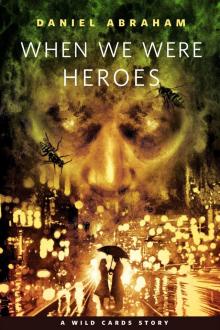 When We Were Heroes
When We Were Heroes Warriors
Warriors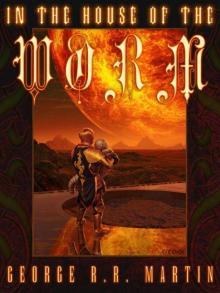 In the House of the Worm
In the House of the Worm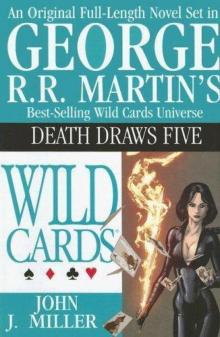 Death Draws Five
Death Draws Five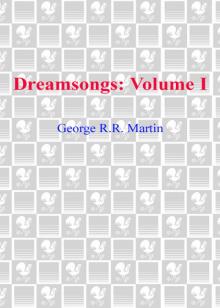 Dreamsongs. Volume I
Dreamsongs. Volume I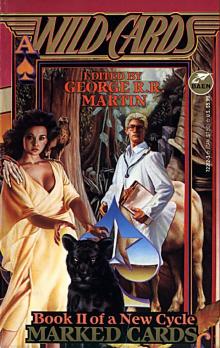 Marked Cards
Marked Cards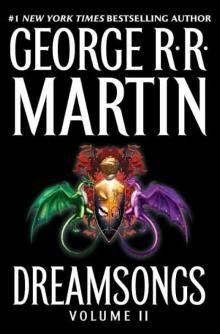 Dreamsongs
Dreamsongs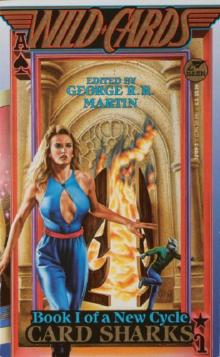 Card Sharks
Card Sharks Dangerous Women
Dangerous Women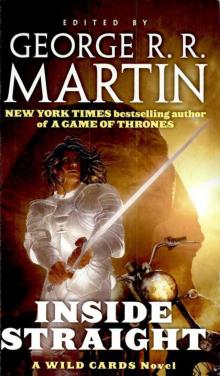 Inside Straight
Inside Straight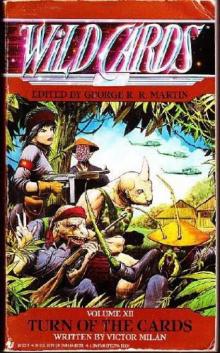 Turn of the Cards
Turn of the Cards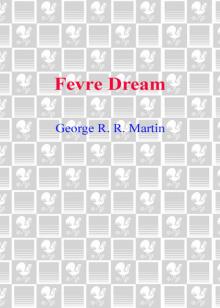 Fevre Dream
Fevre Dream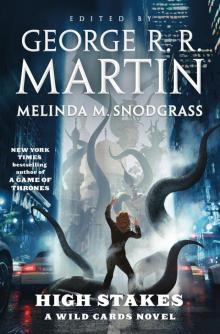 High Stakes: A Wild Cards Novel
High Stakes: A Wild Cards Novel Windhaven
Windhaven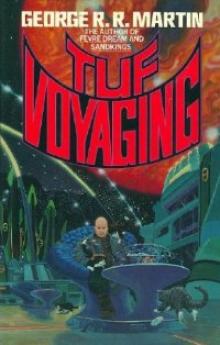 Tuf Voyaging
Tuf Voyaging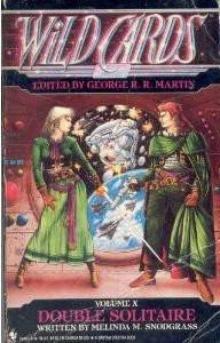 Double Solitaire
Double Solitaire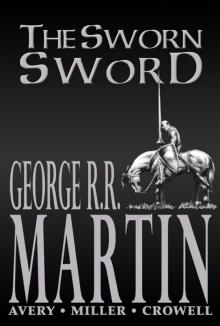 The Sworn Sword
The Sworn Sword Low Chicago
Low Chicago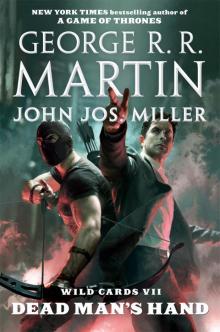 Dead Man's Hand
Dead Man's Hand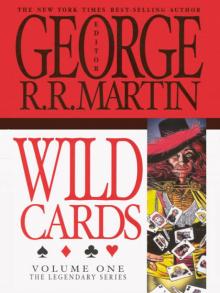 Wild Cards
Wild Cards Black Trump
Black Trump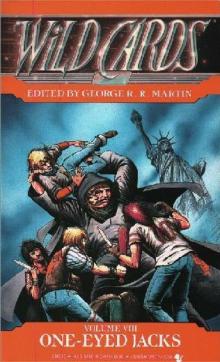 One Eyed Jacks
One Eyed Jacks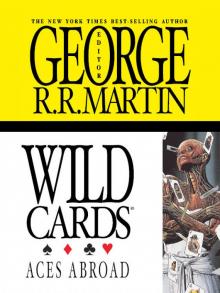 Wild Cards: Aces Abroad
Wild Cards: Aces Abroad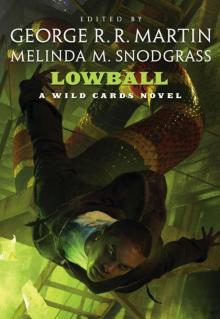 Lowball: A Wild Cards Novel
Lowball: A Wild Cards Novel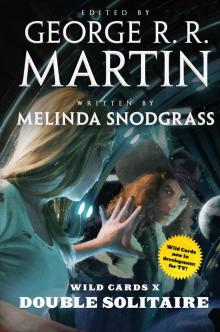 Double Solitaire (2019 Edition)
Double Solitaire (2019 Edition) Dealer's Choice
Dealer's Choice Ace in the Hole
Ace in the Hole A Song for Lya: And Other Stories
A Song for Lya: And Other Stories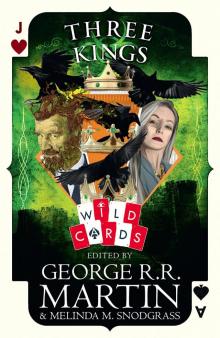 Three Kings
Three Kings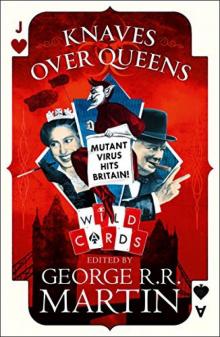 Knaves Over Queens
Knaves Over Queens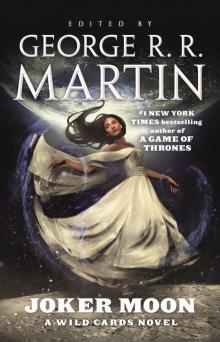 Joker Moon
Joker Moon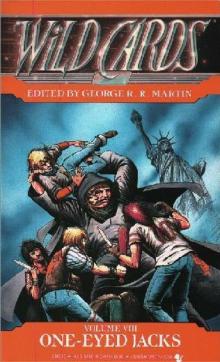 One Eyed Jacks wc-8
One Eyed Jacks wc-8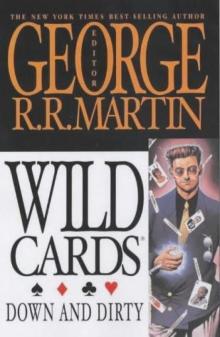 Down And Dirty wc-5
Down And Dirty wc-5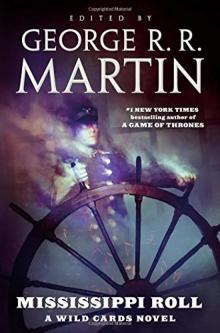 Mississippi Roll_A Wild Cards Novel
Mississippi Roll_A Wild Cards Novel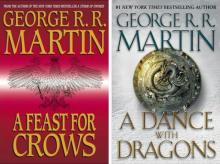 A Feast for Dragons
A Feast for Dragons The Sworn Sword ttodae-2
The Sworn Sword ttodae-2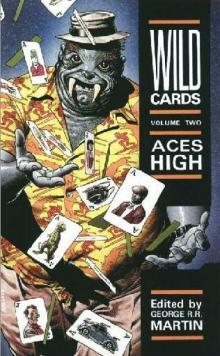 Aces High wc-2
Aces High wc-2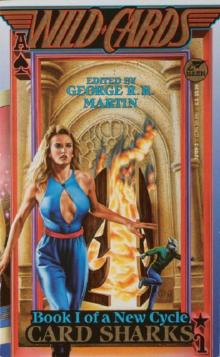 Wild Cards 13 : Card Sharks
Wild Cards 13 : Card Sharks Way of the Wizard
Way of the Wizard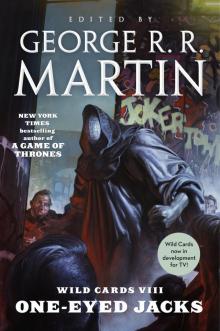 Wild Cards VIII: One-Eyed Jacks
Wild Cards VIII: One-Eyed Jacks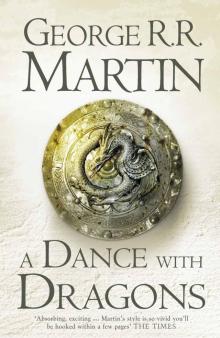 A Dance With Dragons: Book 5 of A Song of Ice and Fire (Song of Ice & Fire 5)
A Dance With Dragons: Book 5 of A Song of Ice and Fire (Song of Ice & Fire 5) The Princess and The Queen, Or, The Blacks and The Greens (a song of ice and fire)
The Princess and The Queen, Or, The Blacks and The Greens (a song of ice and fire)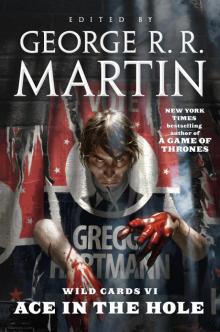 Wild Cards VI--Ace in the Hole
Wild Cards VI--Ace in the Hole The World of Ice & Fire: The Untold History of Westeros and the Game of Thrones (A Song of Ice and Fire)
The World of Ice & Fire: The Untold History of Westeros and the Game of Thrones (A Song of Ice and Fire)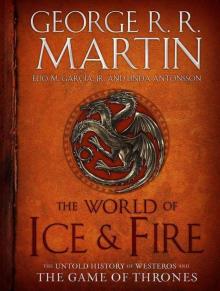 The World of Ice & Fire: The Untold History of Westeros and the Game of Thrones
The World of Ice & Fire: The Untold History of Westeros and the Game of Thrones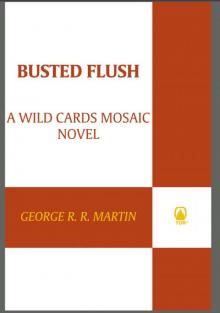 Busted Flush wc-19
Busted Flush wc-19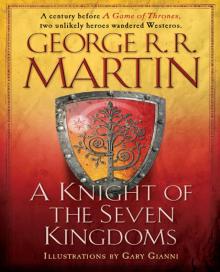 A Knight of the Seven Kingdoms
A Knight of the Seven Kingdoms Nightflyers: The Illustrated Edition
Nightflyers: The Illustrated Edition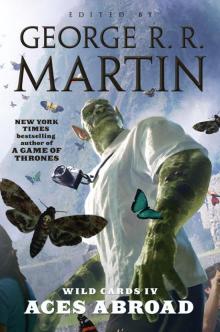 Wild Cards IV
Wild Cards IV Portraits of His Children
Portraits of His Children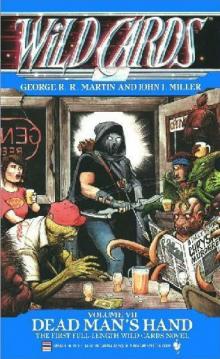 Dead Mans Hand wc-7
Dead Mans Hand wc-7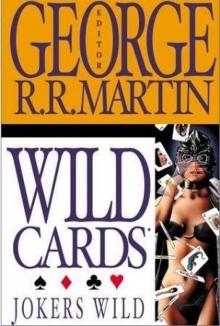 Jokers Wild wc-3
Jokers Wild wc-3 The Lonely Songs of Laren Dorr
The Lonely Songs of Laren Dorr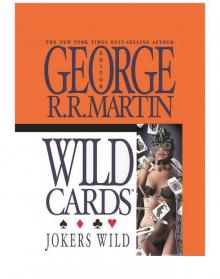 Wild Cards III: Jokers Wild
Wild Cards III: Jokers Wild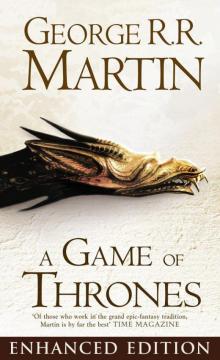 A Game of Thrones Enhanced Edition
A Game of Thrones Enhanced Edition Nightflyers & Other Stories
Nightflyers & Other Stories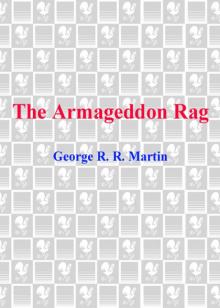 Armageddon Rag
Armageddon Rag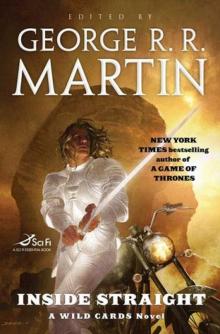 Wild Cards: Inside Straight
Wild Cards: Inside Straight A Song for Lya
A Song for Lya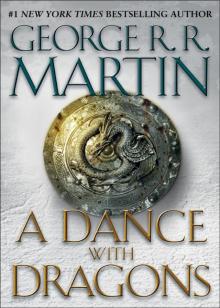 A Dance with Dragons: A Song of Ice and Fire: Book Five
A Dance with Dragons: A Song of Ice and Fire: Book Five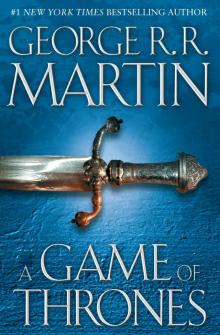 Song of Fire & Ice 01 - A Game of Thrones
Song of Fire & Ice 01 - A Game of Thrones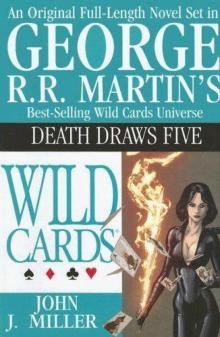 Death Draws Five wc-17
Death Draws Five wc-17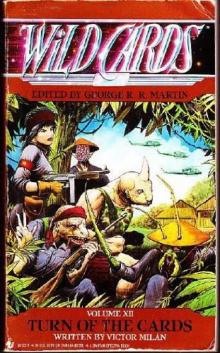 Turn of the Cards w-12
Turn of the Cards w-12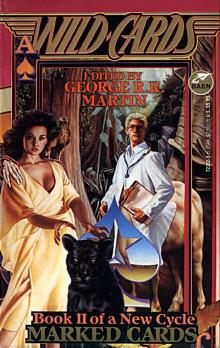 Wild Cards 14 - Marked Cards
Wild Cards 14 - Marked Cards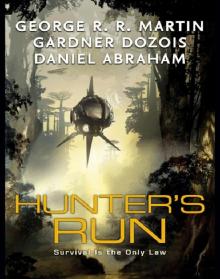 Hunter's Run
Hunter's Run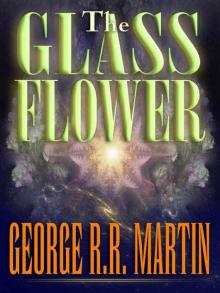 The Glass Flower
The Glass Flower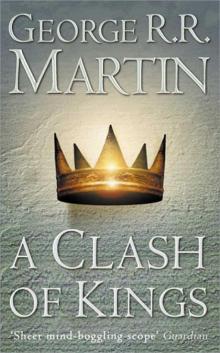 A Clash of Kings asoiaf-2
A Clash of Kings asoiaf-2 A Game of Thrones 5-Book Bundle: A Song of Ice and Fire Series: A Game of Thrones, A Clash of Kings, A Storm of Swords, A Feast for Crows, and A Dance with Dragons (Song of Ice & Fire)
A Game of Thrones 5-Book Bundle: A Song of Ice and Fire Series: A Game of Thrones, A Clash of Kings, A Storm of Swords, A Feast for Crows, and A Dance with Dragons (Song of Ice & Fire)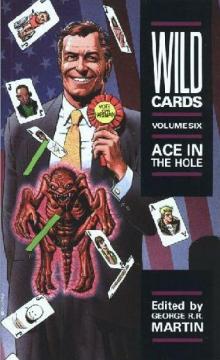 Ace In The Hole wc-6
Ace In The Hole wc-6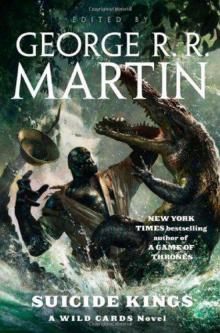 Suicide Kings wc-20
Suicide Kings wc-20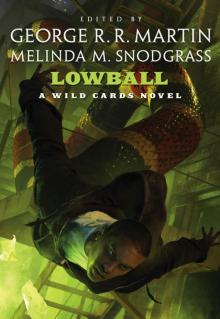 Lowball
Lowball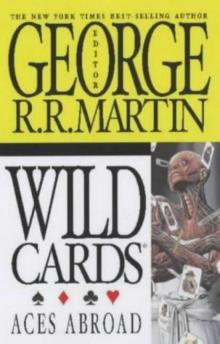 Aces Abroad wc-4
Aces Abroad wc-4 George R. R. Martin's a Game of Thrones 4-Book Bundle
George R. R. Martin's a Game of Thrones 4-Book Bundle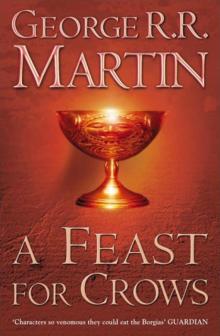 A Feast for Crows asoiaf-4
A Feast for Crows asoiaf-4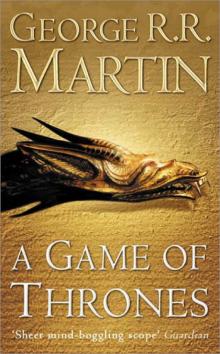 A Game of Thrones asoiaf-1
A Game of Thrones asoiaf-1 The Mystery Knight ttodae-3
The Mystery Knight ttodae-3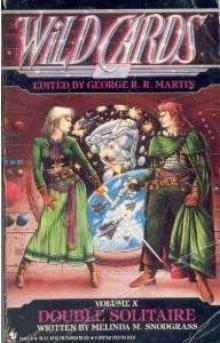 Double Solitaire w-10
Double Solitaire w-10 Wild Cards 15 - Black Trump
Wild Cards 15 - Black Trump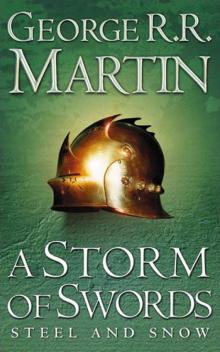 A Storm of Swords asoiaf-3
A Storm of Swords asoiaf-3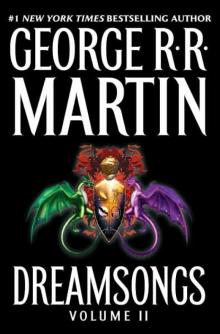 The Hedge Knight ttodae-1
The Hedge Knight ttodae-1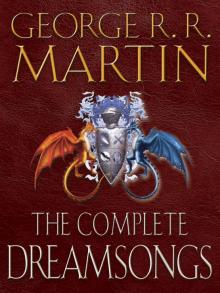 Dreamsongs 2-Book Bundle
Dreamsongs 2-Book Bundle The World of Ice & Fire
The World of Ice & Fire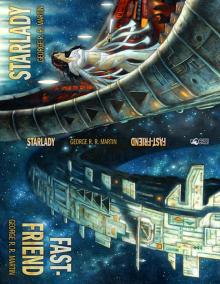 Starlady & Fast-Friend
Starlady & Fast-Friend Old Mars
Old Mars Fantasy For Good: A Charitable Anthology
Fantasy For Good: A Charitable Anthology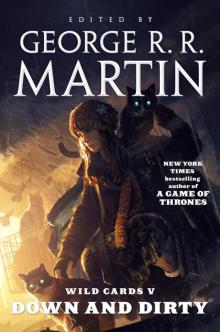 Wild Cards V
Wild Cards V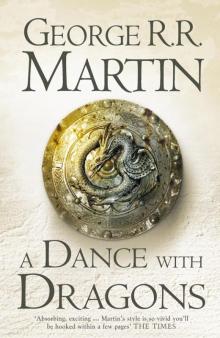 A Dance with Dragons asoiaf-5
A Dance with Dragons asoiaf-5 Dealer's Choice w-11
Dealer's Choice w-11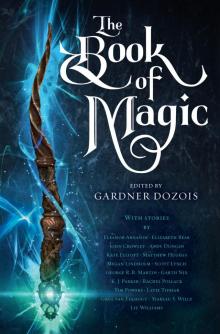 The Book of Magic
The Book of Magic A Game of Thrones 4-Book Bundle
A Game of Thrones 4-Book Bundle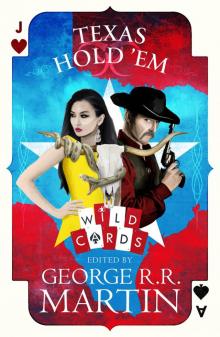 Texas Hold 'Em
Texas Hold 'Em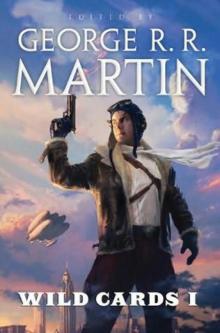 Wildcards wc-1
Wildcards wc-1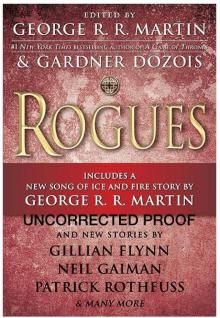 Rogues
Rogues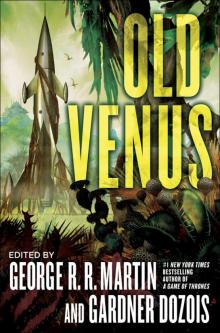 Old Venus
Old Venus